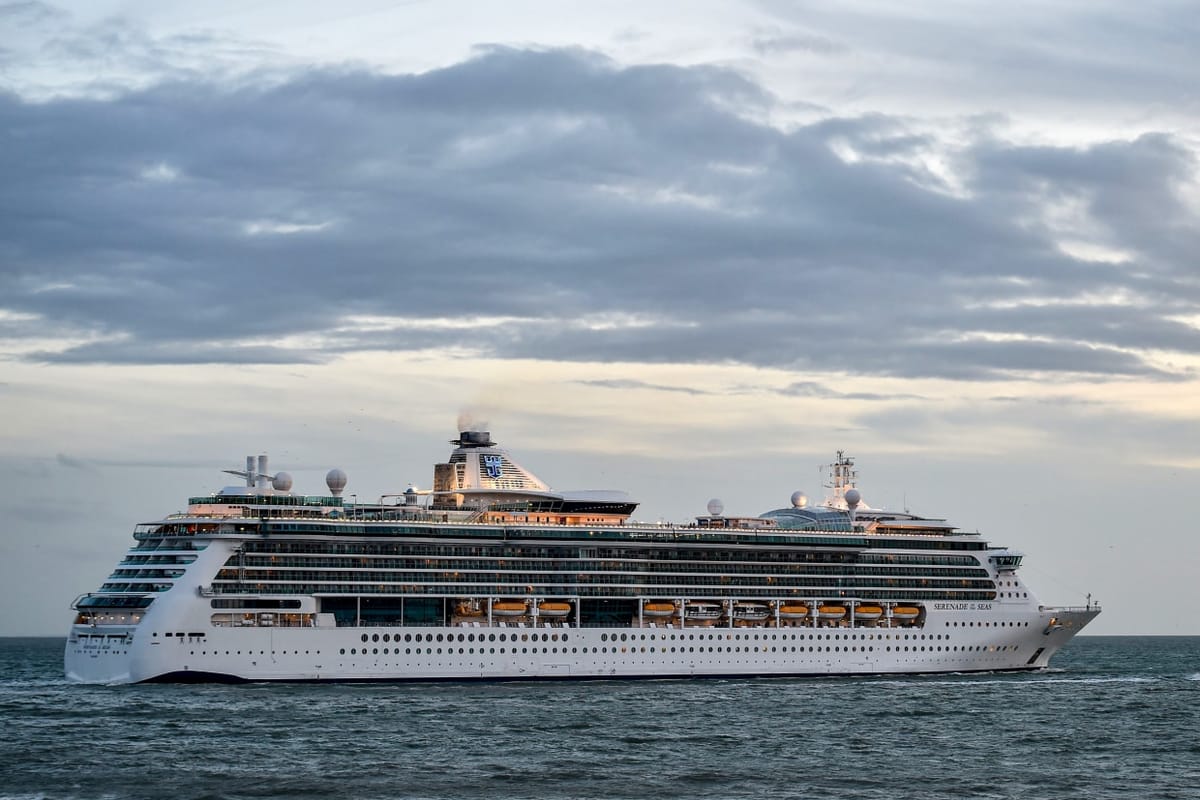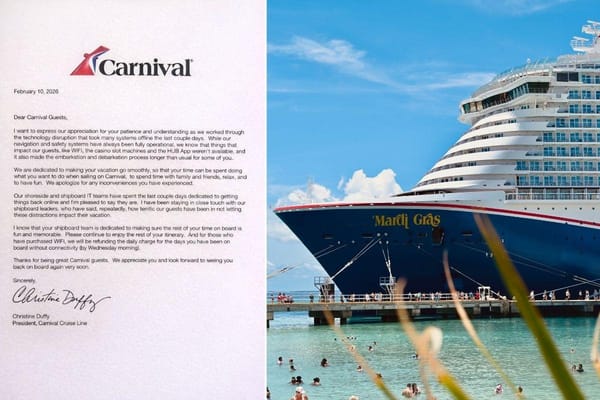Cruise Ship Norovirus Outbreaks Reach Highest Level Since 2007
Cruise ships are seeing the most gastrointestinal illness outbreaks since 2007, with rising norovirus activity nationwide challenging onboard health measures and sanitation protocols.

This year has been unprecedented for gastrointestinal illnesses aboard cruise ships, with outbreaks reaching levels not seen since 2007. Data from the Centers for Disease Control and Prevention (CDC) show that 19 gastrointestinal illness outbreaks have been reported aboard ships operating in or near U.S. waters thus far in 2025. Fourteen of these outbreaks were attributed to norovirus, highlighting its role as the primary pathogen in the resurgence.
Serenade of the Seas: A Significant Outbreak
Among the most notable cases this year, Royal Caribbean International's Serenade of the Seas experienced a norovirus outbreak that affected 94 passengers and four crew members. The CDC documented the incident under the Vessel Sanitation Program (VSP), which monitors and responds to gastrointestinal illnesses aboard U.S.-connected cruise ships.
Norovirus, a highly contagious foodborne illness, is characterized by symptoms such as diarrhea, vomiting, and stomach cramps. The outbreak was reported to U.S. health authorities, and the ship implemented additional cleaning and hygiene measures in coordination with CDC protocols.
Rising Numbers: Why 2025 Stands Out
The spike in onboard gastrointestinal illnesses can be attributed to multiple factors. First, passenger volumes departing from North American cruise ports have rebounded significantly following the pandemic-related downturn, with over 20 million passengers embarking in 2024 alone. The crowded, communal nature of cruise travel creates fertile conditions for disease transmission.
Additionally, norovirus activity has risen nationwide. Between August 2024 and July 2025, the CDC documented at least 2,675 outbreaks of gastrointestinal illness in the U.S., almost double the figures from the same period in the previous year. Experts speculate that a new norovirus strain, coupled with low population immunity, may be contributing to the surge.
Challenges within the COVID-strained Vessel Sanitation Program have also raised concerns. Earlier this year, the CDC fired all of its full-time cruise ship inspectors working for the program, delegating responsibilities to U.S. Public Health Service officers. These reductions in experienced personnel have prompted worries about the program’s capacity to keep pace with growing case numbers.
Clinical and Operational Challenges for Ship Operators
The confined spaces aboard cruise ships, combined with shared amenities like dining areas, handrails, and elevator buttons, make controlling the spread of illness uniquely difficult. Transmission on ships frequently occurs through contaminated food or water, shared surfaces, or direct person-to-person contact.
Despite operational efforts to strengthen sanitation and bolster onboard protocols, the likelihood of outbreaks remains high during peak travel seasons. VSP guidelines require ships to follow stringent reporting practices, initiating enhanced cleaning and containment protocols when gastrointestinal illness case thresholds are reached.
Practical Precautions for Cruise Passengers
For travelers planning upcoming cruises, practicing good hygiene can significantly reduce the risk of contracting norovirus or other illnesses:
- Wash hands regularly with soap and water, especially after restroom use and before handling food.
- Avoid touching high-contact surfaces unnecessarily and use hand sanitizer where available.
- Maintain hydration and rest to support overall immune health.
- Inform onboard medical teams immediately if you experience symptoms, such as vomiting or diarrhea.
- Leave areas impacted by visible illness and notify the ship’s staff for prompt response.
Monitoring the Outlook for Norovirus Activity
As norovirus seasons typically peak during cooler months, vigilance will remain crucial for cruise operators and passengers alike. While recent data indicate a slight decline in outbreak numbers following last winter’s surge, concerns linger as winter approaches.
The cruise industry has long relied on layered control measures to reduce illness risks, including robust sanitation practices and rapid outbreak reporting. The CDC continues to monitor these incidents via the Vessel Sanitation Program, providing guidance and oversight to limit spread.
Passengers may feel reassured knowing established systems are in place to detect and manage outbreaks efficiently. Nevertheless, simple personal precautions, like frequent handwashing and prompt reporting of health symptoms, remain effective tools to minimize onboard risks.
Frequently Asked Questions (FAQs)
How many gastrointestinal outbreaks have occurred on cruise ships in 2025?
The CDC reported 19 gastrointestinal illness outbreaks aboard cruise ships in U.S.-connected waters during the first nine months of 2025, including 14 linked specifically to norovirus. This is the highest annual count since 2007.
What happened aboard Royal Caribbean’s Serenade of the Seas?
Royal Caribbean International’s Serenade of the Seas experienced a norovirus outbreak that sickened 94 passengers and four crew members. The cases were recorded under the CDC’s Vessel Sanitation Program and led to onboard hygiene interventions.
Why are gastrointestinal illnesses more frequent on cruise ships?
Cruise ships’ close quarters and communal spaces, such as buffets and shared accommodations, create an environment conducive to disease spread. Norovirus, in particular, thrives in these conditions due to its high transmissibility through contaminated food, surfaces, or personal contact.
What precautions can travelers take to avoid illness during cruises?
Travelers should wash hands frequently, avoid touching high-contact surfaces, stay hydrated, and promptly report any symptoms to onboard medical teams. Adhering to CDC sanitation guidance and following ship protocols can further reduce risks.
What role does the CDC’s Vessel Sanitation Program play?
The VSP monitors gastrointestinal illnesses aboard ships operating in or near U.S. waters, conducts regular sanitation inspections, and issues guidance to cruise operators. The program mandates ships to report outbreaks, facilitating containment measures where necessary.




